ISOLATION, anxiety, drug deaths and hundreds of miles from home. As students finally return to their families for Christmas after months apart, Fabulous investigates why so many have been let down during the pandemic.
Staring down at the message on her phone, first-year Newcastle University student Circe Rousselet felt panic rising.
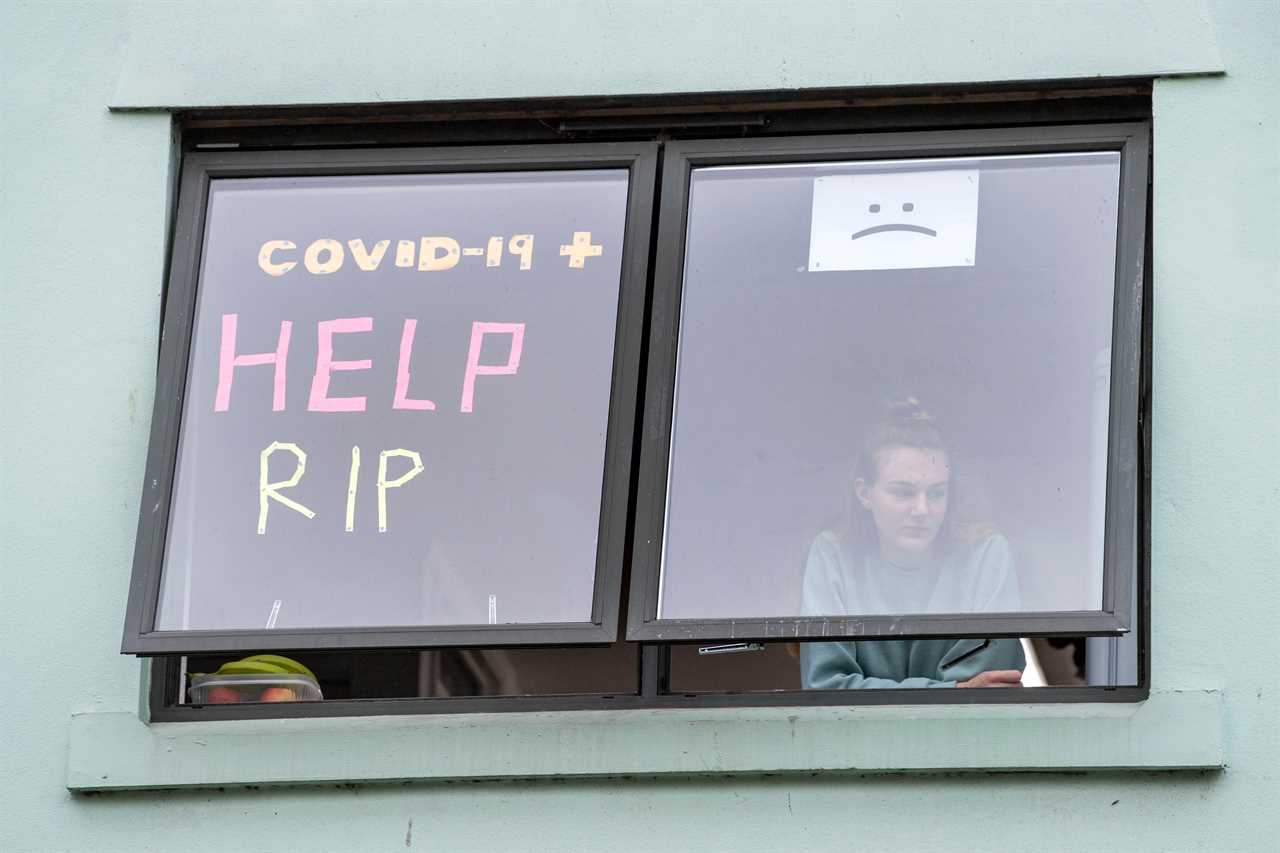
Despite feeling fine, a Covid-19 test she’d taken after dozens of fellow students in her new halls of residence started displaying symptoms, had come back positive – meaning for the next 10 days she’d be isolating in a flat with nine people she’d only just met.
“It was extremely frightening,” says Circe, 19, who relies on daily use of an inhaler to manage her asthma, which puts her at risk of developing severe complications from coronavirus.
“My family had all been so careful, but within three days of moving into halls, I’d tested positive. I worried about what would happen if I got really sick so far from home, but my mum said if it came to it, she’d drive up from our home in London and sleep on my floor to look after me.”
Circe was one of more than 1,000 students who contracted coronavirus during Fresher’s Week at Newcastle University in the first week of October. And it was a story repeated up and down the country.
In the same seven days, 425 students and staff at the University of Nottingham, 382 at the University of Manchester and 500 at the University of Sheffield tested positive. By October 12, at least 9,000 students had been infected across 68 universities, many of them freshers in their first weeks away from home.
‘TEMPTATION TO BREAK LAW’
It was exactly the scenario thousands of parents had feared: outbreaks on campuses, forcing students into isolation in often-cramped accommodation, with little support and government restrictions barring them from returning home.
“I begged my daughter not to go,” says Lorraine Thomas, 53, a property developer from London and mum to Tia, 19, who started at Birmingham’s Aston University this autumn. “I was hugely worried, but I tried not to think about her getting sick without me there.
Honestly, I question how much I’d be tempted to break the law and drive down there to look after her if she tested positive.” The start of the academic year provided the perfect storm for the virus to spread. More than 2 million students arrived on campus, many from areas with high coronavirus rates.
After the A level fiasco of the summer – in which 39% of students were marked down and later marked up again – a record number had secured uni places.
Despite fears universities would face economic ruin because of a pandemic-related decrease in the number of international students, this year actually saw a 9% rise in the number of students from outside the EU, according to UCAS.
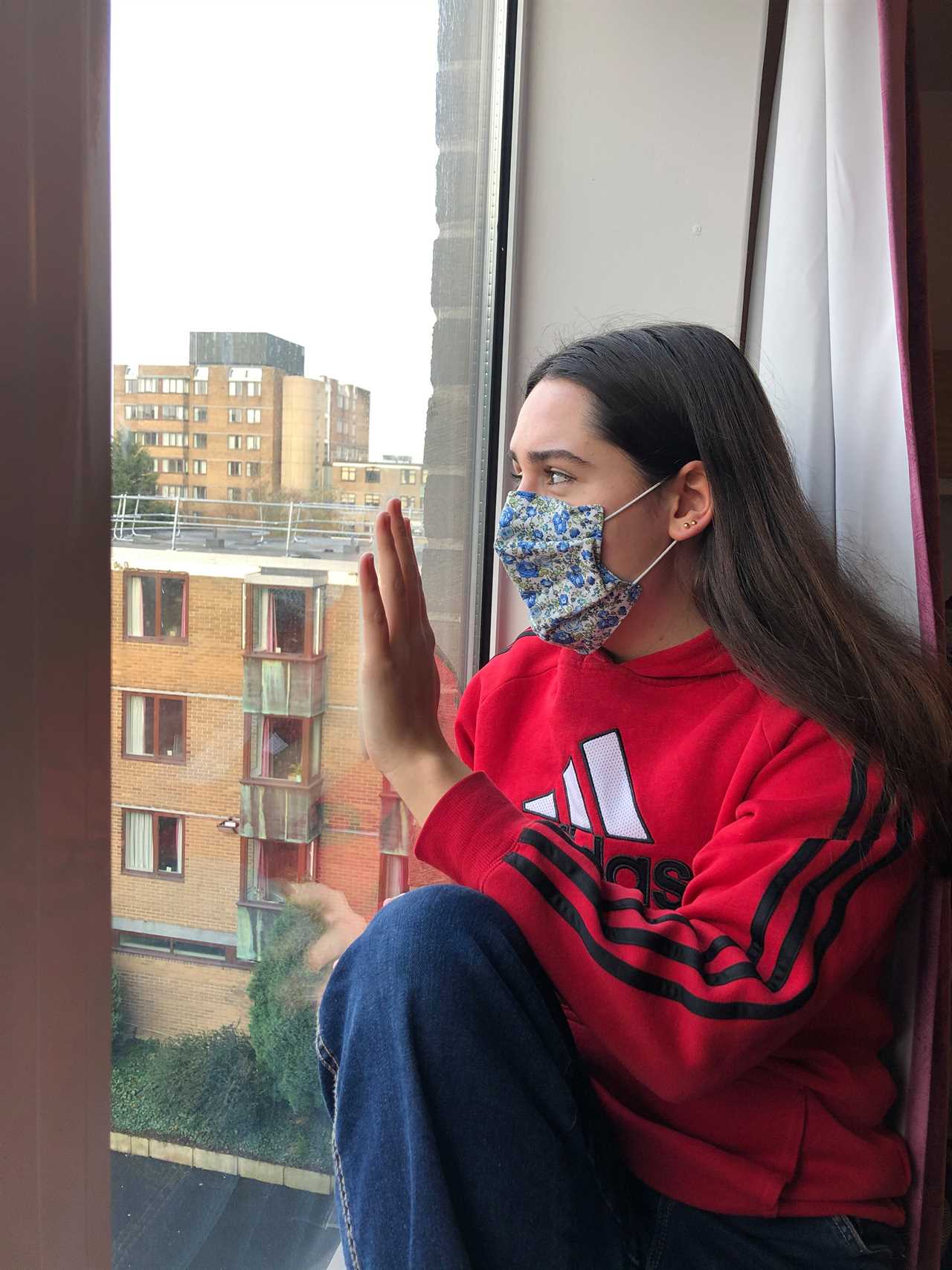
With Australian and New Zealand borders closed to foreign students and an alarmingly high number of Covid-19 cases in the US, 44,300 overseas students flocked to UK universities – many paying as much as four times the fees of EU candidates.
But with so many students squeezed into uni halls and house shares, the virus surged. Tens of thousands were forced into isolation, and many complained about overpriced isolation parcels full of junk food.
At Lancaster University, more than 1,000 people signed a petition to stop the university from “profiting” from food parcels, leading the National Union of Students to issue a statement reminding universities of their duty of care to students, who are “people not pounds.”
“There were 10 of us isolating, but we didn’t receive our food parcels for 24 hours,” says Circe, who pays an additional £4,600 per year to live in catered halls on top of the standard annual £9,250 tuition fees for her course in psychology.
“It definitely made me feel anxious,” she says. “The flat isn’t made for spending so much time in – there’s one bathroom between 10 and no laundry facilities, so we couldn’t wash our clothes.”
‘COULDN’T WASH CLOTHES’
Thankfully, Circe and her housemates recovered without becoming seriously ill. But there has been a sombre mood in their halls since the deaths of three fellow students in drug-related incidents in October.
Jeni Larmour, 18, from Northern Ireland, and another unnamed female, also 18, died in the same halls a day apart, while the third was a student at nearby Northumbria University.
“It really shook a lot of people up,” says Circe. “I didn’t know the students who died, but it was really, really horrible, especially for the people who live in that accommodation.
“A lot of parents were really worried, mine included, though I told them they didn’t need to worry about me as I definitely wouldn’t be taking anything.
“At the start of term there was a phase where some students were taking acid, which seemed extreme – but I haven’t heard about people doing anything since the deaths.”
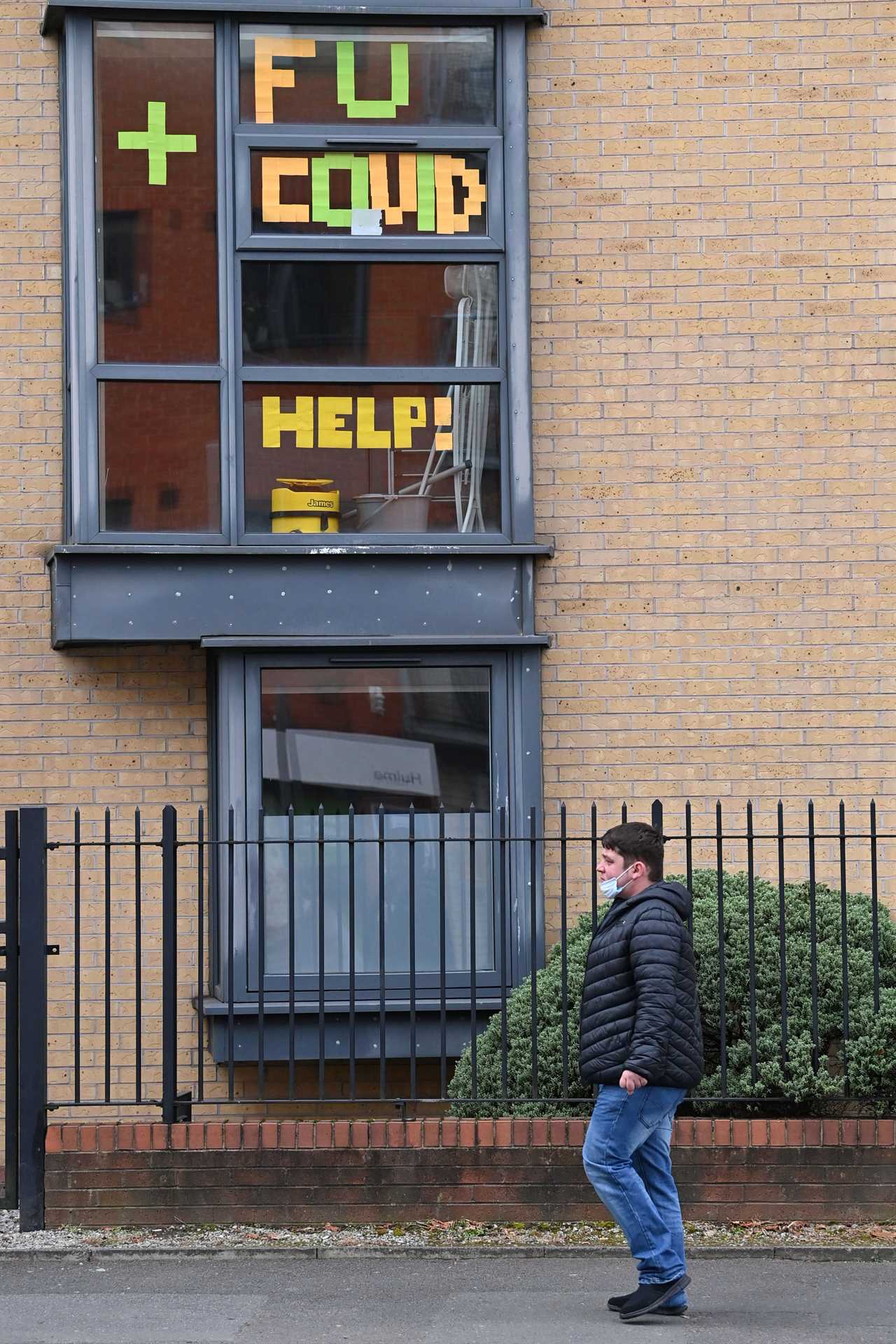
Anecdotal reports say that some students are turning to drugs such as MDMA and ketamine out of boredom, with concerns growing about the increased dangers that come with taking substances at home rather than at nightclubs or in city centres, where there are often paramedics or security on hand.
Students have also reported being targeted by dealers who slip cards under their bedroom doors, advertising Snapchat and Instagram accounts where class A drugs can be ordered and paid for by Bitcoin, before being delivered to halls.
“It’s cause for concern because students may not be getting the support they need,” says Jennifer Smith, a spokesperson for mental health charity Student Minds. “It’s difficult for them to access support for substance abuse at the best of times because of the taboo surrounding it, and this issue has been compounded by the pandemic.”
There is also a worrying increase in students suffering from anxiety and depression. A recent survey by Mind found that young people were more likely than any other age group to report that the pandemic had impacted their mental health. Worryingly, there’s been a reported increase in suicidal thoughts among young people.**
Michael Kitson, father of 19-year-old Finn who was recently found dead at the University of Manchester during a campus lockdown, tweeted: “If you lock down young people because of Covid-19, with little support, then you should expect that they will suffer severe anxiety.”

Claudia,* an 18-year-old fresher studying in Cambridge, knows only too well the devastating effects it can have. “I’ve suffered from anxiety for years, but starting uni in a pandemic has compounded everything,” she says.
“Ten days ago, I asked the uni for counselling, but there’s a waiting list of three or four weeks. There are so many students needing help right now. I have racing thoughts that make it hard to focus.
“They give me a low mood and I’m constantly on edge. My GP told me to go through the uni, so I’m in limbo.
“Recently, a guy from my flat attempted suicide, which really shook me up,” she says. “The ambulance didn’t come, so he had to get a taxi to the hospital and his friend wasn’t able to stay with him because of restrictions.
When he got back to campus, I was one of the few people he told – I’m glad he confided in me, but I feel the weight of responsibility of knowing. I’m still trying to process it. A close friend at another uni had a girl in her flat try to kill herself, too – she’s been really traumatised, so she had to go home.”
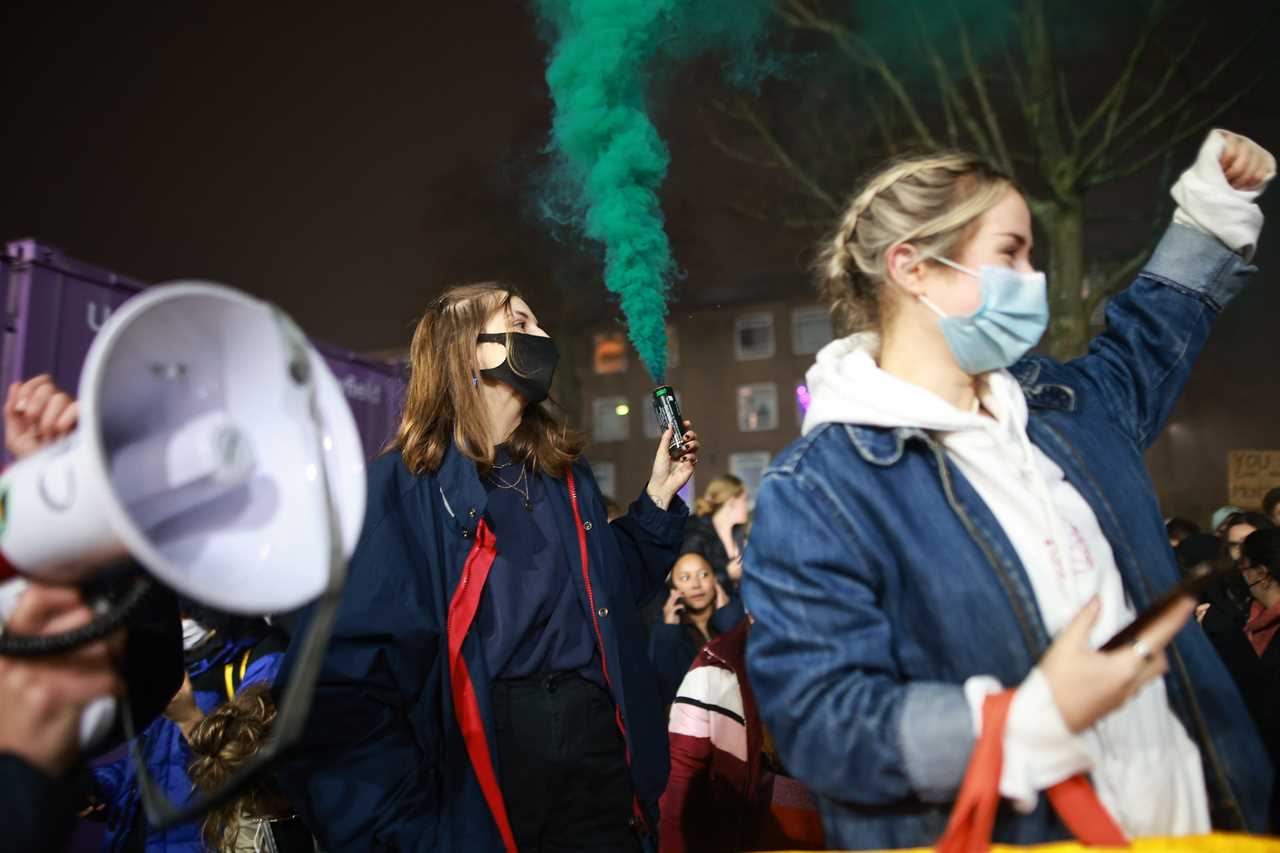
Despite reassurances from the university and the goverment that students would be offered “blended learning” with a mixture of in-person and online lectures, many students have found themselves studying exclusively online.
“In the summer, universities and the government were suggesting students would be able to participate in all the kinds of activities and opportunities their predecessors have,” says Jennifer from Student Minds. “This simply hasn’t played out.”
For Claudia, this has only exacerbated her mental health problems. “It’s really hard to focus on lectures and classes online as all the information is so dense and I haven’t met any of the professors, so I haven’t been able to form a relationship with them,” she says.
“I find it hard to remember their names sometimes and I find myself pausing classes because it’s just so hard to concentrate. Some days I have to have a day off because I feel so exhausted and down, but the next day I’ll have seven hours of classes to catch up. I’ve found myself getting really behind and that makes my anxiety so much worse. It’s a vicious circle.”
For many young people, one of the toughest pills to swallow has been the blame that has been placed upon them for supposedly boosting Covid case numbers. But while many have complied with rules, others have not been so sensible.
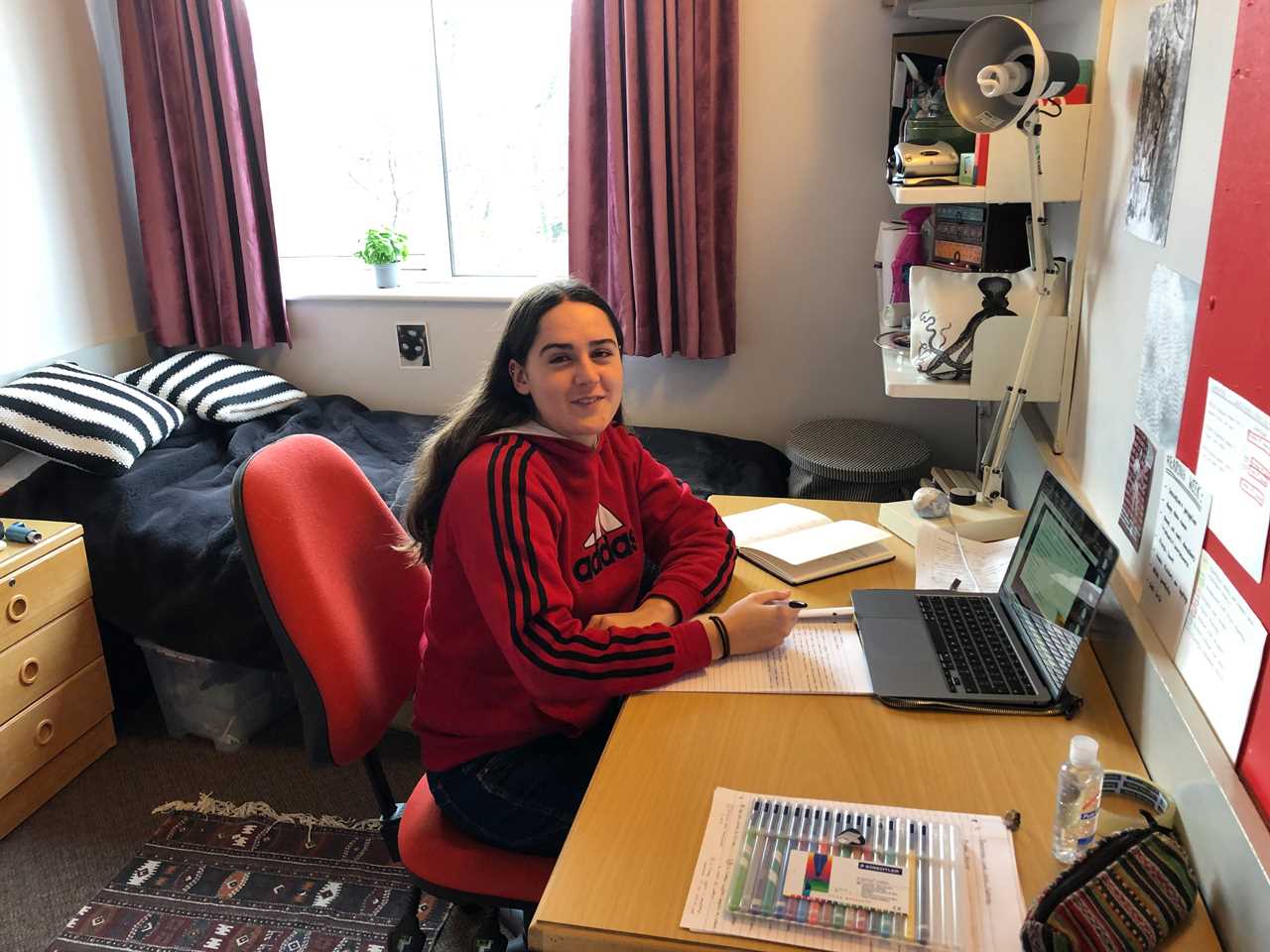
At Cardiff University, police have been called to break up parties of 150 students, while in Coventry, police are currently investigating a recent “huge hall rave.” In late October, four students in Nottingham were fined £10,000 each after a large house party.
When police arrived, the students hid 30 revellers in the kitchen and bathroom and accused police of “spoiling their fun” when they should have been having “the time of their lives.”
“The excitement of all of them hitting a university campus was always going to be a disaster,” says Lorraine. “After their stressful summer battling to get their A level results overturned, not being able to finish sixth form properly and being stuck at home for months, fun was the order of the day.
“Everyone’s kids were saying the same thing: they wanted to live their best lives. I could see the horror before it happened, and half of Tia’s accommodation block broke out in Covid as soon as they arrived. I know they’re still partying because when I ring her at 1pm she’s asleep.”
As this term draws to a close, the government has drawn up guidelines for students to finally come home for the Christmas break. More than 1.2 million students are planning on returning to their families, with the government rolling out mass testing before students are given a small travel window – December 3-9 – in order to get home.
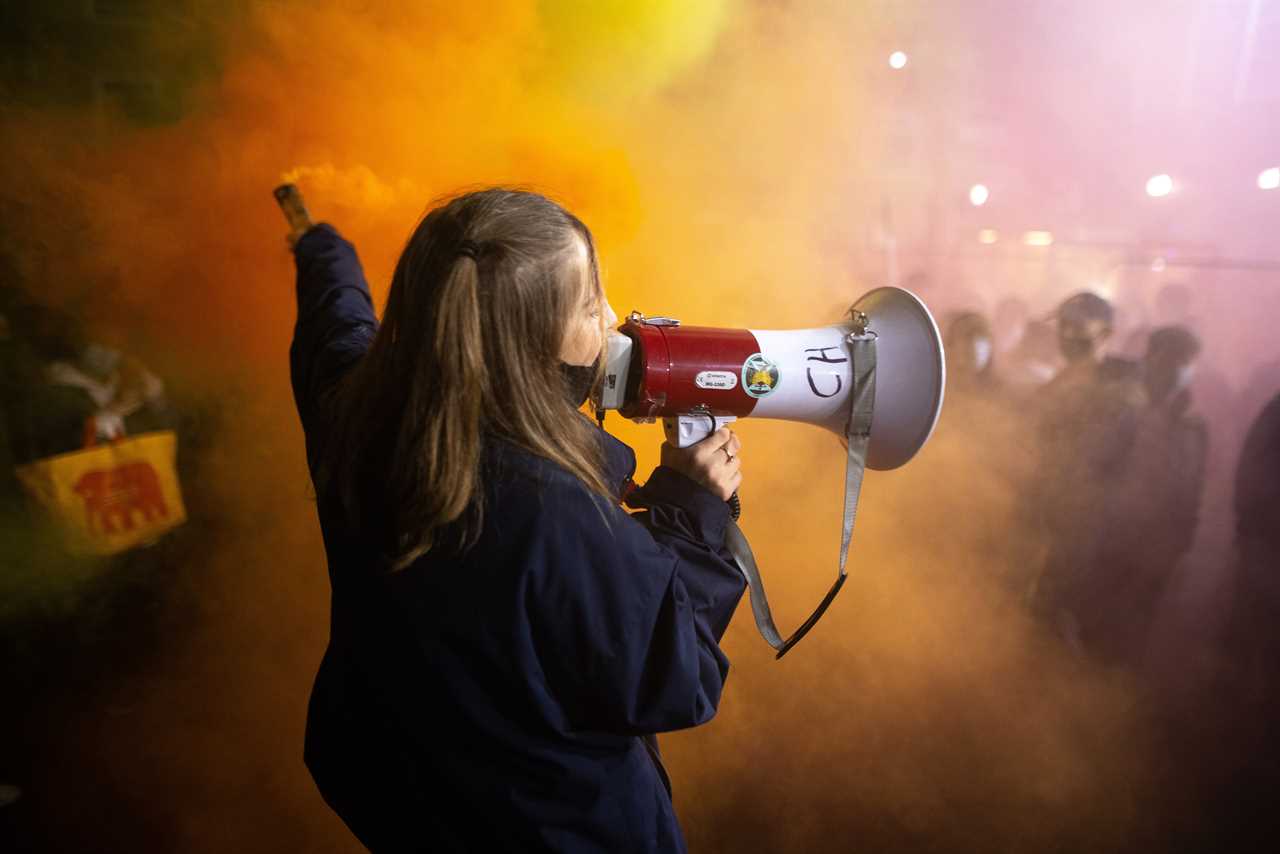
But anyone testing positive for the virus may have to face a very lonely festive period. “I would hate to be stuck here for Christmas,” says Circe. “But I think most people’s parents would just come and get them. I feel really sorry for the international students here who have no choice.”
At the time of going to press, the government had yet to publish a thorough plan for the safe return of students in January. “In order for students to make an informed decision about going home, they need to know if and how they’re going to be able to come back,” says Student Minds’ Jennifer.
“Without proper coordination, we risk a repeat of September and October, where students were moving across the country and many were exposed to the virus. We can only hope that the government takes on board lessons from this term.”
The National Union of Students couldn’t agree more. “Universities were so hungry for students’ rent and fees”, says NUS president Larissa Kennedy, “that they tempted them back to campus without proper provisions, crammed them in their student halls and then subjected them to mass lockdowns.
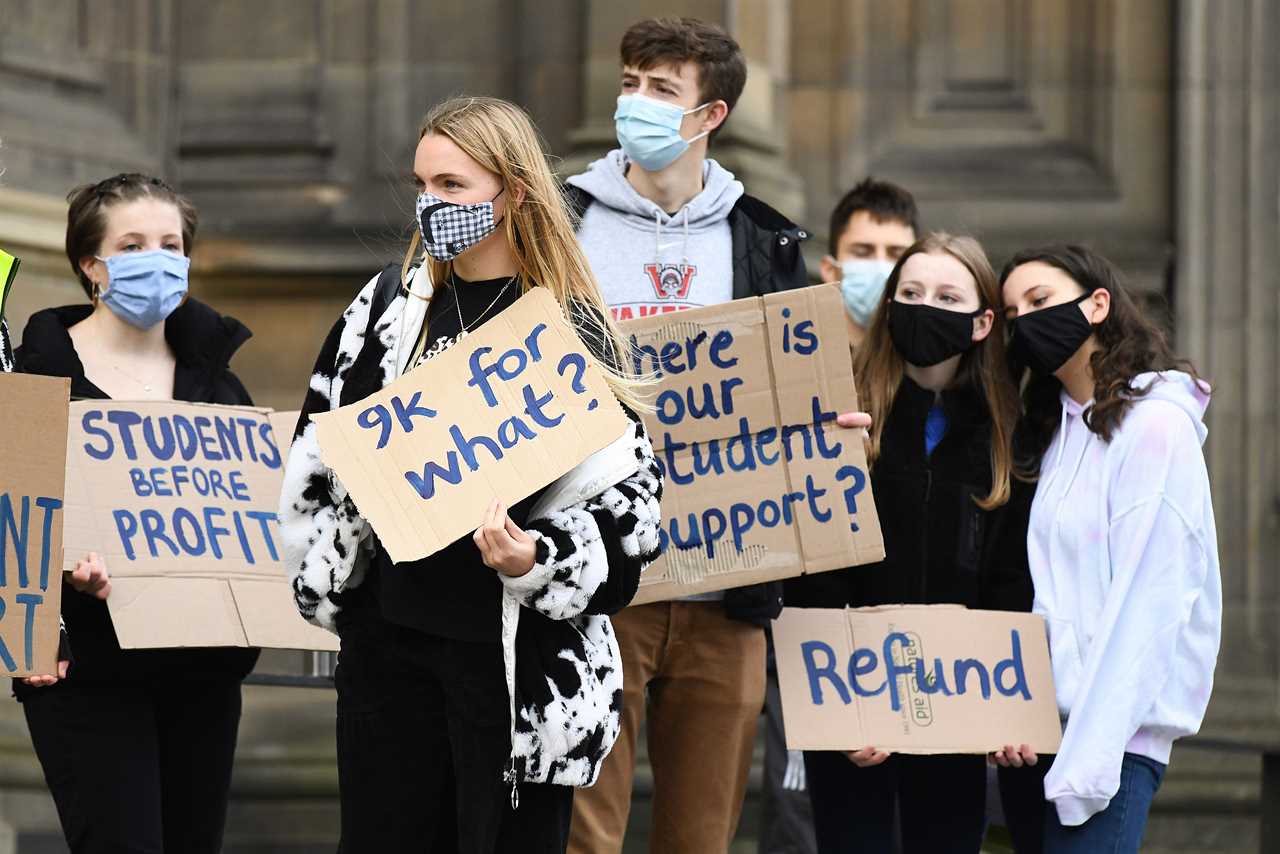
Some people have spent the entire term in and out of self-isolation, and are now suffering serious mental health consequences. Students deserve so much better than this.” For support and information visit Studentminds.org.uk.
Credit: *Name has been changed






